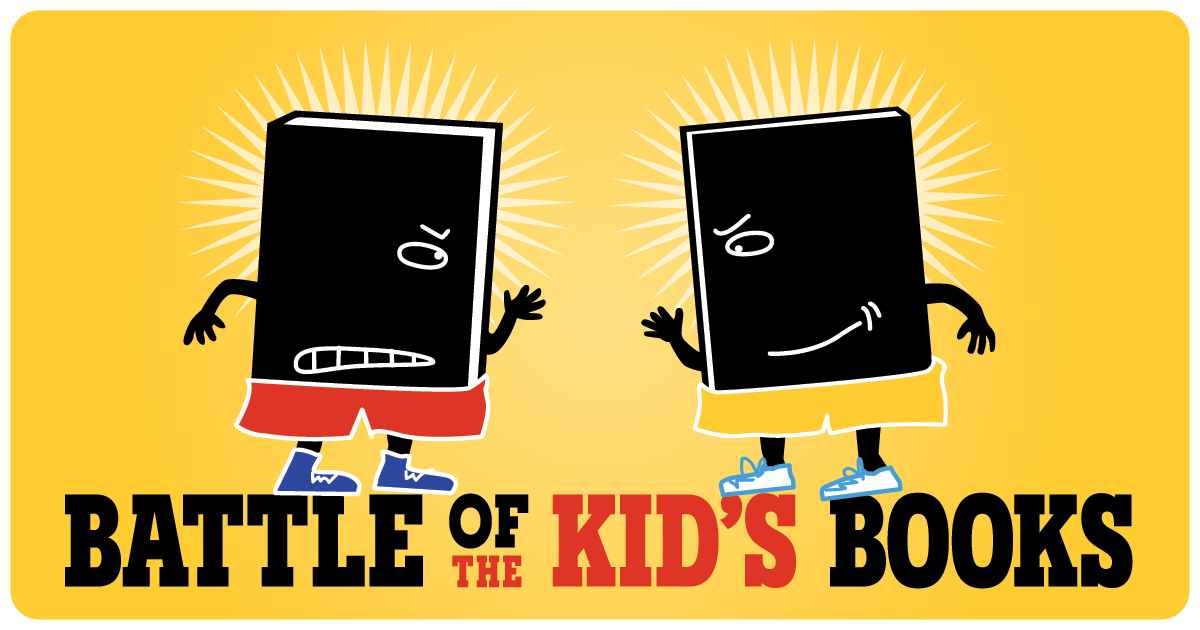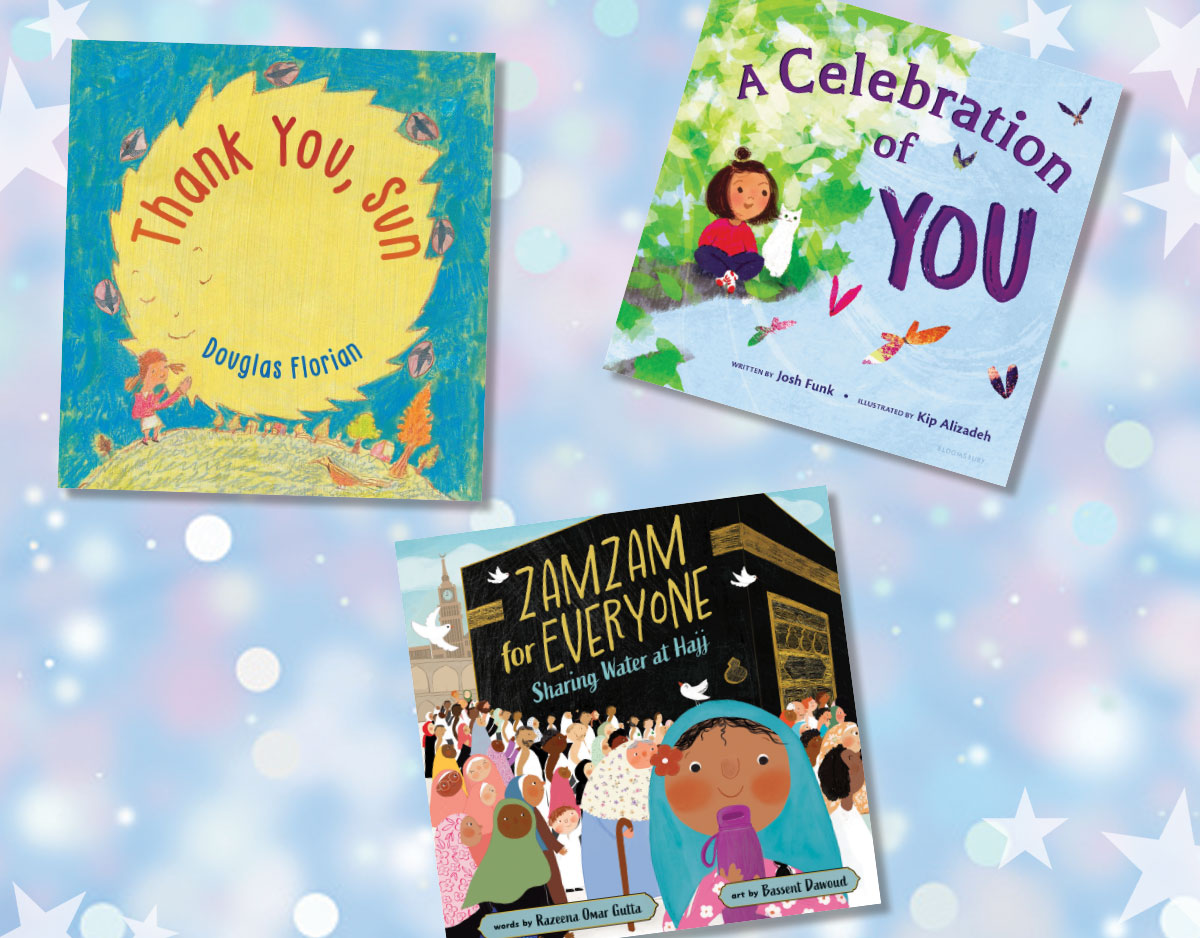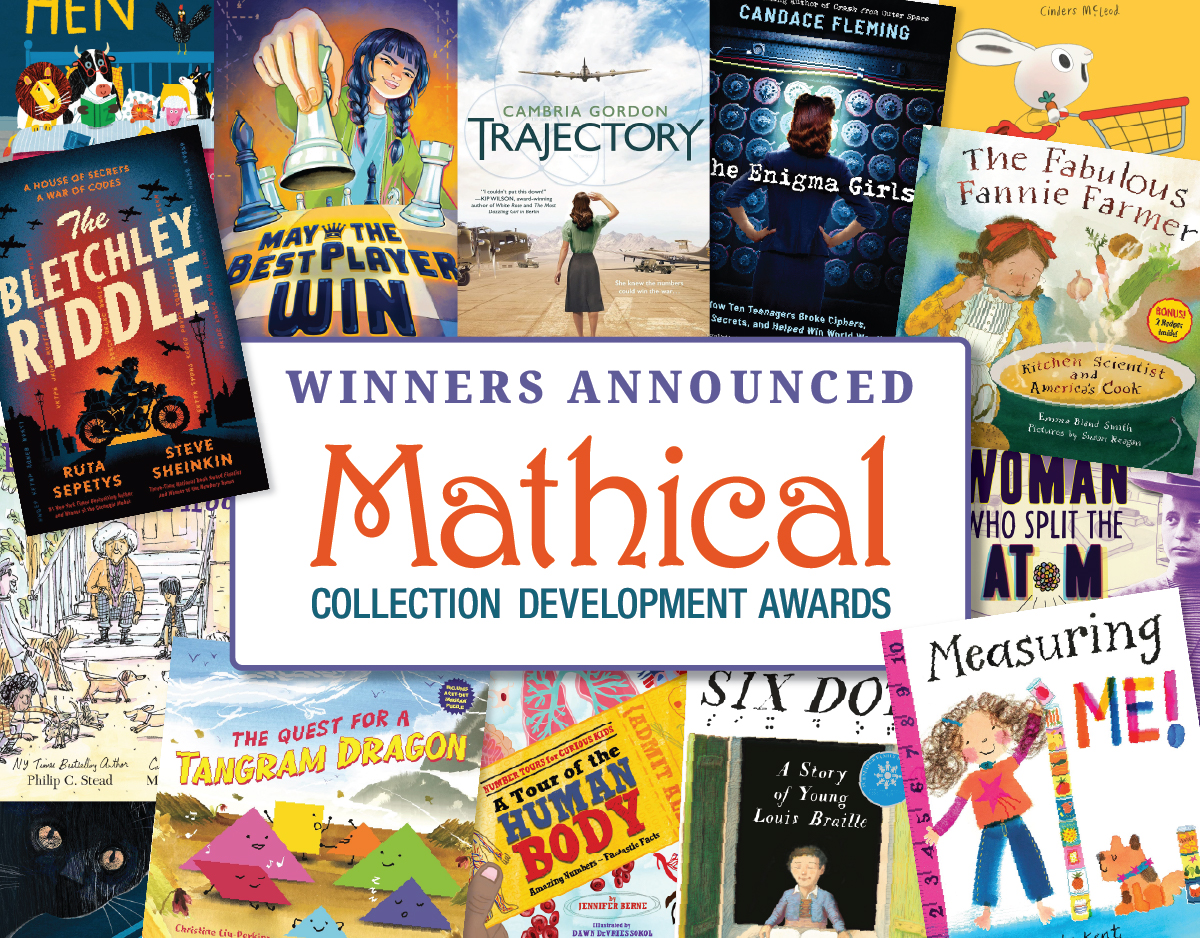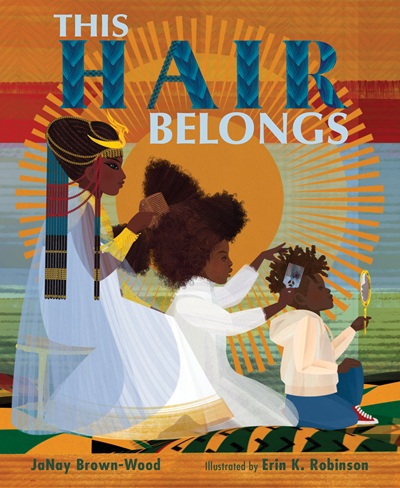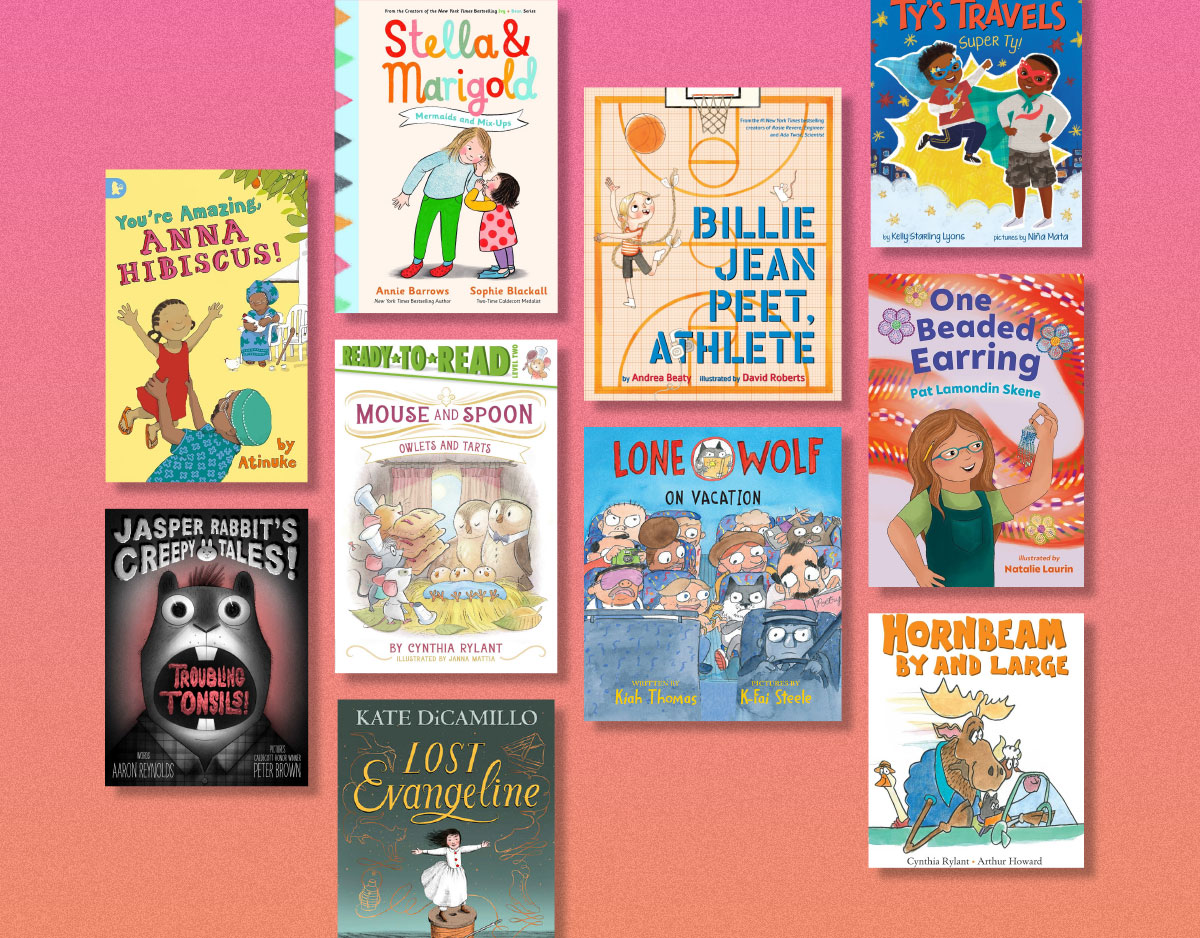SCROLL DOWN TO READ THE POST
Round 1, Match 7: Rose Under Fire vs The Thing About Luck
| Rose Under Fire by Elizabeth Wein Hyperion/Disney |
The Thing About Luck by Cynthia Kadohata Atheneum Books for Young Readers |

Since SLJ’s Battle of the Kids Books is known for its wacky pairings, I’ll skip the whole “these two books are so different!” hand-wringing. It’s true, Elizabeth Wein’s Rose Under Fire is quite different from Cynthia Kadohata’s The Thing About Luck. But that doesn’t mean they can’t be compared and, of course, judged.
(Anyone who knows me would likely agree that I’m a decisive person. And yes, I secretly — or not so secretly now that I’ve written this — enjoy judging books. I rarely do it in public due to my effort to cultivate an unruffled and diplomatic exterior, but when I was given the chance to be a BoB judge, I did not hesitate.)
The Thing About Luck might seem to have this in the bag, given that it won the 2013 National Book Award. It’s a gentle, sweet story about twelve-year-old Summer, a Japanese American girl who comes from a family of wheat harvesters in Kansas. Just before harvest season begins, her parents have to go to Japan to care for ailing relatives, leaving Summer and her younger brother, Jaz, in the care of their grandparents: prickly Obaachan, her grandmother, and hard-working Jinchan, her grandfather.
Summer, who nearly died from a freak bout of malaria earlier in the year, believes that her family is suffering through a string of bad luck. Her belief is affirmed by the difficulties they go through during harvest season, but Summer’s precise voice takes us through the ordeals calmly. Summer is an endearing character who is intensely fascinated by combine harvesters, the giant machines that Jinchan drives to harvest thousands of acres of wheat. Since Summer’s illness, she has also become obsessed with mosquitoes, and the book is accompanied by Julia Kuo’s charming illustrations of both mosquitoes and combines. (Can a combine be cute? Yes!)
Although I rarely read middle grade novels, I welcomed the chance to dip my toes into Summer’s world. Not only do I have a secret fascination with farming (again, I’m letting the cat out of the bag) which was thoroughly indulged by Summer’s detailed explanations, I appreciated the fact that The Thing About Luck is about a Japanese American girl, but is not about her being Japanese American. Summer does not suffer because of her race, and I can’t stress enough how meaningful this is. When I was Summer’s age, I don’t recall reading one single book about an Asian American girl, and I was a voracious reader. To have people like you completely erased from the books around you — even if as a twelve-year-old you’re not aware this is what’s happening — has consequences in the way you see yourself. You don’t see yourself.
How does Rose Under Fire compare? Like The Thing About Luck, it’s the story of a young woman told in her voice, but that’s about where the similarities end. Told in first-person journal entries, Rose Under Fire is a young adult novel about an American ATA pilot, Rose Justice, who is captured in Germany during World War II and imprisoned at Ravensbrück, the women’s concentration camp.
It’s a companion novel to Elizabeth Wein’s much-lauded Code Name Verity, but you don’t need to read Code Name Verity to fall under Rose Under Fire’s spell. At the beginning of the book, Rose is a naive young woman who has volunteered to ferry airplanes for the Allies. The horrors that she endures and witnesses at Ravensbrück, as well as the friendships she forges in that hellish place, change her almost completely — as they must. Rose Under Fire is a fictional account of things that really happened, particularly to a group of female Polish political prisoners who were experimented on by Nazi doctors. Rose’s struggle to help tell the story of these women, known as “rabbits,” is the purpose that she discovers during her time in the concentration camp.
I found Rose Under Fire to be a difficult read, emotionally, because it chronicles a truly awful period of history, and I think that’s as it should be. At the same time, I absolutely fell under the thrall of Wein’s storytelling. She has a clear knack for writing about airplanes and flying, which made what could have been dry mechanical exposition into something truly thrilling. (Perhaps, considering my interest in Summer’s combines, I also have a secret fascination with machinery.) I also admired the skillful way that Wein integrated her research about Ravensbrück and the rabbits into Rose’s story. She packed a lot of history in there, and it was all engrossing.
Both Rose Under Fire and The Thing About Luck are good books. But which book deserves to move forward? I’ve decided that making this judgement call requires me to think like a writer (which isn’t much of a stretch since that’s what I am). Both are first-person novels. Which does it better?
As a writer, I often think of stories as three-dimensional objects. When I consider The Thing About Luck in this light, it emerges in my mind as something like an egg. The shell is the framing device of the concept of luck. The book begins with Summer ruminating on her family’s run of bad luck; it concludes when that bad luck comes to an end. But this is only the shell of the story; when you crack it open you discover a liquid and lively yolk. The yolk is the heart of the story: a twelve-year-old girl’s dawning awareness of her courage, told in Summer’s clear first-person voice. It’s a rich and nourishing center, deceptive in its simplicity.
Rose Under Fire takes on a completely different shape. It is no smooth-shelled egg; it is jagged, like a modern sculpture made of reclaimed metal. This makes sense given the subject matter of the novel; it would be wrong for Rose Under Fire to have its edges smoothed off. But though the shape is appropriate, I felt that the means by which the shape is formed — Rose’s journal entries — did not quite work. Rather than bringing me closer to Rose’s experience, I felt distanced from it because I knew, due to the journal entry dates, that Rose survived.
Writing a novel in journal form is a complicated task for many reasons, and while I admire Elizabeth Wein for doing it, I think Rose’s story might have been better served in a more straightforward first-person narrative. For that reason, I choose Cynthia Kadohata’s The Thing About Luck, and Summer’s pitch-perfect first-person voice, to win this round.
— Malinda Lo

Interesting…first person in Rose Under Fire? I don’t necessarily think so. Code Name Verity was more of a thriller, and Rose is more psychological, it’s slower, and the journal entries allow for reflection, transformation, and some darn good poems. Remembering it, I almost wish it would win, or at least COME BACK IN THE UNDEAD POLL, but The Thing About Luck is one of those deceptively simple, wondrous kids’ books I’ve been talking about (and it won the National Book Award to prove it). I love Ms. Lo’s image of an egg, and the characterization is so full and poignant (but not like Eleanor and Park!) in remarkably subtle ways: Jazz, Obaa-chan, and Summer herself. The farming life was another world to me as a city kid, and it was such a complete book! I might well want this to win the whole thing, though Rose Under Fire and True Blue Scouts (coming up next, with another interesting match) are also fantastic.
– Kid Commentator RGN
THE WINNER OF ROUND 1 MATCH 7:
THE THING ABOUT LUCK
About Battle Commander
The Battle Commander is the nom de guerre for children’s literature enthusiasts Monica Edinger and Roxanne Hsu Feldman, fourth grade teacher and middle school librarian at the Dalton School in New York City and Jonathan Hunt, the County Schools Librarian at the San Diego County Office of Education. All three have served on the Newbery Committee as well as other book selection and award committees. They are also published authors of books, articles, and reviews in publications such as the New York Times, School Library Journal, and the Horn Book Magazine. You can find Monica at educating alice and on twitter as @medinger. Roxanne is at Fairrosa Cyber Library and on twitter as @fairrosa. Jonathan can be reached at hunt_yellow@yahoo.com.
ADVERTISEMENT
SLJ Blog Network
Which Publisher Has Won the Most Caldecott Medals This Century?
For Some Reason They Let me Interview Questlove & S.A. Cosby??? I’m Not Questioning It
Claudette Colvin and Stories of Black Activism | Opinion
Audio Review: BETH IS DEAD by Katie Bernet
The Classroom Bookshelf is Moving
Our 2026 Preview Episode!
ADVERTISEMENT
ADVERTISEMENT

